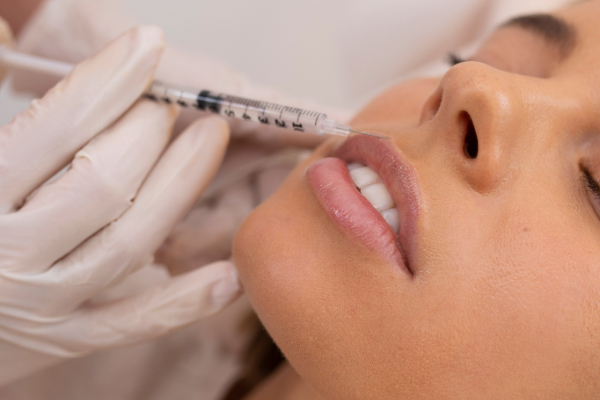
Exploring ways to achieve a youthful, radiant appearance? At the Family Dental Clinic, we offer both Botox and dermal filler treatments to help you look and feel your best
If you’ve been curious about these treatments and whether you can combine them, you’re in the right place!
In this blog post, we delve into the details to help you make an informed decision:
How Do Botox and Facial Fillers Differ?
Botox is a purified protein that temporarily relaxes muscles, reducing the appearance of wrinkles and fine lines. It’s commonly used on the forehead, around the eyes (crow’s feet), and between the eyebrows (frown lines).
Dermal fillers, on the other hand, are substances (most commonly hyaluronic acid) that are injected into the skin to add volume, smooth out wrinkles and enhance facial contours. They are often used for plumping lips, cheeks, and reducing nasolabial folds (the lines from the nose to the mouth).
Benefits of Combining Botox and Fillers
Combining Botox and fillers can provide a more comprehensive approach to facial rejuvenation.
Here’s why you might consider both:
Tackling Signs of Aging
- Botox smooths dynamic wrinkles caused by muscle movements.
- Fillers address static wrinkles and restore lost volume.
- Together, they tackle multiple signs of aging simultaneously, providing comprehensive rejuvenation for a more youthful appearance.
Achieving a Balanced Appearance
- Using both treatments achieves a harmonious and balanced look.
- This dual approach ensures facial symmetry and a natural appearance.
- It enhances overall facial contours without over-treating any specific area.
Convenience
Having both filler and Botox treatments done in one visit saves time and allows for a more streamlined approach to your aesthetic goals.
- Many people lead busy lives and finding time for multiple appointments can be challenging. By combining treatments, you can achieve your desired results more quickly and efficiently.
- Receiving both treatments at once can mean a single recovery period, minimising downtime and allowing you to get back to your routine sooner. This one-stop approach can be particularly appealing for those looking to maximise their results without multiple visits.
What to Expect After Your Treatment
Post-treatment, you might experience mild swelling, redness, or bruising at the injection sites, which should subside within a few days. The results from Botox can take up to two weeks to fully develop and typically last 3-4 months. Fillers provide immediate results with effects lasting from 6 months to over a year, but this will vary from patient to patient.
For more information on what to expect after your facial filler treatment, check out our post-filler aftercare guide.
Is Combining Treatments Right for You?
Combining filler and Botox isn’t for everyone, and the best approach depends on your unique needs and aesthetic goals. During your initial consultation with us, we’ll discuss your options and recommend the best course of action.
At our family dental practice, all of our aesthetic practitioners are clinically trained and qualified for your peace of mind.
Ready to explore the benefits of filler and Botox treatments? To chat through your facial aesthetic requirements, click here or call 01243 771171 to schedule a consultation at our Chichester clinic.
